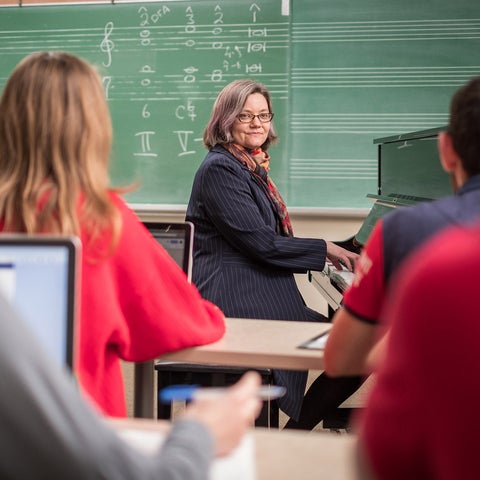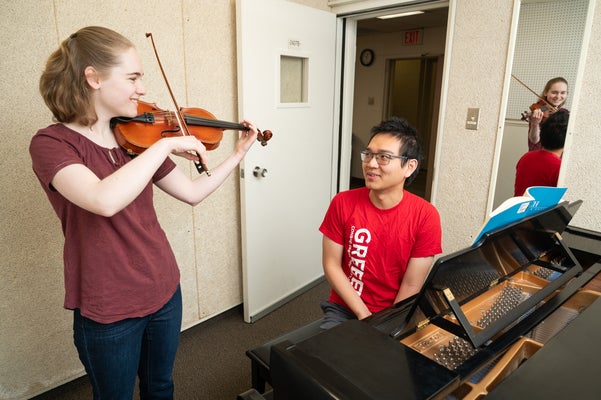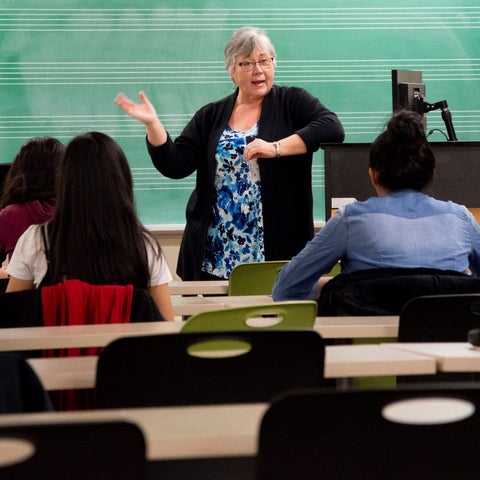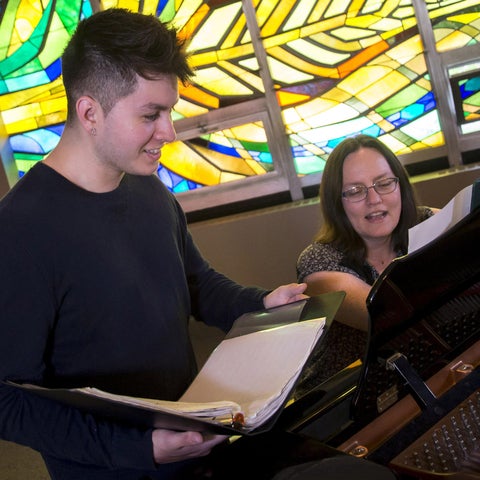
Music as liberal arts
Our aim is to offer a music program with a liberal arts character. This means balancing intensive study in the traditional musical disciplines of performance, theory, and history with courses offering more breadth, such as popular music, jazz, worship and music, world music, and music and gender. We like to explore the edges of music, the places where it intersects with other parts of our lives. We are looking for students interested both in making music and in asking questions about its relevance in our society.

Our Community
The Department of Music is large enough to offer an interesting and vibrant community and still small enough that you can get to know each student, staff, and faculty member personally. We admit around 15 new majors to the program each year. There are also about 30 music minors.
We strive for an atmosphere of mutual support and encouragement rather than competition. Our location at Conrad Grebel University College, one of Waterloo's four affiliated colleges on campus, facilitates a genuine sense of community in the midst of a large, bustling campus. Music classrooms, practice rooms, library, and a dining room are all located within the college.
Free weekly noon hour concerts connect both on-campus and off campus communities with music, and the Grebel community produces a musical every two years.
Learn more about the Music community while living at Conrad Grebel residence →

Flexibility
A major in Music can be pursued in a number of ways. In addition to studying music as your sole major, you can combine it with most other majors as a double major or as a joint-honours degree. A music minor can also be taken as part of most degrees offered at Waterloo. A smaller group of music courses can also be taken to provide a "second teachable" for students intending to pursue a Bachelor of Education after their time at Waterloo. Music courses, studio, and ensembles are open to any UW student, even if you are not a major or a minor.

Resources of a great university
The University of Waterloo has long been recognized as the most innovative university in Canada. Every year, Maclean's magazine measures the reputation of Canadian universities by soliciting the opinions of high school guidance counselors, university officials, heads of a variety of national and regional organizations, and Chief Executive Officers and recruiters at large and small corporations. For the past 27 years, the University of Waterloo has been ranked most innovative among 47 universities across the country. Waterloo also often ranks best overall.
The University of Waterloo leads comprehensive universities in the categories of student retention, percentage of students who win national academic awards, classes taught by tenured faculty, awards per full-time faculty, and alumni support.
By linking academic instruction to the issues of the world around us, Waterloo cultivates leadership in its students.

Faculty and Teaching
Ours is a rich and diverse faculty made up of five full-time faculty, 10 part-time lecturers, 17 studio instructors, and five ensembles directors. We all share three characteristics in common: distinguished accomplishment in our particular professional areas such as scholars, composers, theorists, performers, educators; on-going engagement with practical music-making in our local communities; and a commitment to excellence in teaching.